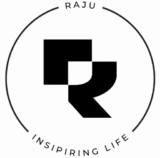The sky was cloudy. Although the temperature hovered above 34°C — quite normal for this place — a gust blowing from the southeast seemed determined to sweep away any thought of the humid weather. The rhythmic sound of waves crashing against the rocks with full force felt serene to my ears.
Suddenly, my wife softly said something that pulled me completely into the present moment. I wasn’t exactly shocked, but I definitely wasn’t prepared for it either. There I was, sitting on the beach with my wife and kid, enjoying a short holiday at one of our favourite spots — a place we often return to. I could already imagine my friends at work getting another chance to pull my leg. 😜
So, coming back to that moment — my wife told me that our eight-year-old had looked up at her and asked, with innocent curiosity, “We’re not rich“.
As parents, we carry the quiet responsibility of guiding our children — teaching life’s small yet powerful lessons as they grow. I felt this was one of those moments, an opportunity to help him look at our world, and himself, through a different lens.
We went back for lunch and ordered the dishes our kid chose from the menu. Afterward, we returned to our room to rest. But before settling down, a thought lingered — where did this question come from? How did such an idea take root in the mind of a eight-year-old who barely understands how society works?
We’ve always tried our best to avoid using words like poor, hate, bad, or ugly around him — words that carry negativity. Like all parents, we want the best for our child, but only as much as he needs, not as much as he wants. Yet, I couldn’t help but wonder — how did this thought still find its way into his mind?
Perhaps it’s the influence of our surroundings, of society itself. Kids like him have friends from different backgrounds — innocent at heart, unaware of our complex norms, rules, and so-called social status. They observe, compare, and absorb far more than we realize. I’m not blaming anyone, but this is exactly where parents need to step in — to guide their children. And I intend to do my best to guide mine.
Later that evening, while we were strolling along the beach, I bought a small, inexpensive toy that had caught his eye earlier. The way his face lit up with pure happiness made me smile. I knew this was the right moment to start the conversation.
“Do you know, Riddh?” — I said gently (I call him Riddh with love). “We should be grateful to God for how fortunate we are. We’re able to visit this beautiful beach, so far from home, and enjoy this cool breeze, this view, and this moment together. We can afford to have a delicious lunch at a restaurant you like, and even buy the toy you wanted. What do you think about that?”
I wanted to teach him about gratitude. Watching his innocent face, I could tell he was listening closely.
“Yes,” he said, agreeing with a quiet smile.
“What do you think, Riddh — are we happy or unhappy?” I asked.
“We are happy,” he answered, his eyes bright.
I smiled. “Exactly. We have everything we need. Others may have more, but we’re content with what we have, right?”
He nodded again, and I said softly, “There’s no such thing as poor or rich. True wealth lies in being happy with what we already have. If you have food to eat, clothes to wear, and a place to stay — you’re blessed. And being happy is what truly matters.”
As we walked, we passed a man sleeping on the footpath. I gently pointed toward him and said, “You’ll see many people who don’t have a home to sleep in.”
I knew Riddh was too young to understand the difference between someone who was drunk and someone who was homeless, but I wanted him to notice.
“There are also people who don’t have enough food to eat, home to sleep,” I continued. “But you — you have everything you need to live a healthy, better life. That means you, me, and mamma are very fortunate and happy people.”
“So, you see, there’s no such thing as poor or rich,” I said softly. “There are only two kinds of people — happy and unhappy. And we are…?”
He looked up at me, his face lighting up with a smile. “Happy people,” he said.
I know that, one day, society will shape his perspective of what it means to be “poor” or “rich.” Yet I hope that what I told him today will stay with him — guiding him to see the world as it truly is.
THAT’S IT

It’s Heart touching 💕
Have a many more great time ahead.
Great lesson for the 8yrs.
People who thinks I don’t have those and these are the real poor people even they have more money.
Kudos @Raju for the writing. Keep them coming